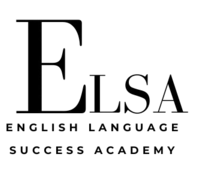In the digital age, mastering English has become more accessible than ever. With a plethora of technological tools at our fingertips, learners can now set, track, and achieve their language goals with unprecedented efficiency. This article explores how various technologies can be harnessed to supercharge your English learning journey.
Language Learning Apps: Your Personal English Tutor
Language learning apps have revolutionized the way we approach English study. Platforms like Duolingo and Babbel offer more than just lessons; they provide robust goal-setting features that keep learners motivated and on track.
Duolingo, for instance, allows users to set daily goals for study time or experience points. Its streak feature encourages consistent practice, while the app’s gamified approach makes learning engaging and fun. Babbel, on the other hand, offers a more structured curriculum with progress tracking, allowing learners to set and monitor specific language proficiency goals.
To make the most of these apps:
- Start with realistic daily goals (e.g., 15 minutes of study or completing one lesson).
- Gradually increase your goals as you build the habit.
- Use the apps’ reminders and notifications to stay consistent.
- Regularly review your progress and adjust your goals as needed.
Productivity Apps: Mastering Time and Habits
While language apps focus on content, productivity apps help manage the study process itself. Tools like Forest and Habitica can be invaluable for time management and habit formation.
Forest, an app that gamifies focus time, can be particularly useful for dedicated study sessions. Set a timer for your English study, and the app grows a virtual tree while you focus. It’s an excellent way to combat distractions and build longer concentration spans.
Habitica turns habit-building into a role-playing game. You can create tasks for your English study goals, like “Review 20 vocabulary words” or “Write a practice essay,” and earn rewards for completing them. This gamified approach can make the sometimes tedious aspects of language learning more enjoyable.
Tips for using productivity apps effectively:
- Set specific, actionable tasks related to your English study.
- Use Forest during focused study sessions to minimize distractions.
- In Habitica, create a balance of daily tasks (like reviewing flashcards) and longer-term goals (like completing a practice test).
- Join or create groups within these apps for added accountability.
Online Communities: The Power of Collective Learning
The internet has made it possible to connect with fellow English learners and native speakers worldwide. Platforms like Reddit (r/EnglishLearning), Lang-8, and HelloTalk offer opportunities for practice, feedback, and motivation.
These communities can:
- Provide accountability through language exchange partnerships.
- Offer a platform to ask questions and get clarifications from native speakers.
- Allow you to share your progress and celebrate achievements with like-minded individuals.
To leverage online communities effectively:
- Set a goal to participate regularly (e.g., make one post or comment per day).
- Be active in giving feedback to others, not just seeking help.
- Use these platforms to find study buddies or accountability partners.
- Share your goals publicly for added motivation and accountability.
AI-Powered Language Tools: Personalized Learning Paths
Artificial Intelligence is transforming language learning by offering personalized experiences. Tools like Grammarly for writing, YouGlish for pronunciation, and ChatGPT for conversation practice provide targeted feedback and tailored learning experiences.
These AI tools can:
- Identify patterns in your mistakes and provide focused practice.
- Offer real-time corrections and explanations.
- Adapt to your proficiency level and learning pace.
To integrate AI tools into your study plan:
- Use Grammarly to set and track writing improvement goals.
- Practice pronunciation with YouGlish, setting targets for words mastered.
- Have regular conversations with AI chatbots, gradually increasing complexity.
- Use AI-generated quizzes to test your progress in specific areas.
Digital Flashcard Systems: Vocabulary Mastery
Apps like Anki and Quizlet have transformed the humble flashcard into a powerful learning tool. These spaced repetition systems optimize vocabulary retention by presenting words at scientifically determined intervals.
To maximize vocabulary learning:
- Set daily goals for new words learned and reviewed.
- Create custom decks for different topics or exam sections.
- Use multimedia (images, audio) in your flashcards for better retention.
- Review your statistics regularly to identify areas needing more focus.
Integrating Tools into a Comprehensive Study Plan
While each of these technologies is powerful on its own, their true potential is realized when integrated into a cohesive study plan. Here’s how to create a tech-enhanced English learning strategy:
- Start by setting clear, measurable goals using the SMART framework.
- Choose a primary language learning app (e.g., Duolingo) for daily structured lessons.
- Supplement with a vocabulary app (e.g., Anki) for targeted word acquisition.
- Use productivity apps to manage study time and build consistent habits.
- Engage with online communities for practice and motivation.
- Employ AI tools for personalized feedback and practice.
- Regularly assess progress using built-in app features and standardized tests.
Avoiding Common Pitfalls
While technology offers numerous benefits, it’s crucial to avoid common pitfalls:
- App-hopping: Stick with chosen apps for at least a month before evaluating their effectiveness.
- Over-reliance on technology: Balance app use with real-world practice and human interaction.
- Neglecting productive skills: Ensure your tech use includes speaking and writing practice, not just passive learning.
- Information overload: Focus on a few key tools rather than trying to use every available app.
- Losing sight of goals: Regularly revisit and adjust your goals based on progress and changing needs.
By thoughtfully integrating these technological tools into your English study routine, you can create a powerful, personalized learning experience that keeps you motivated and on track to achieve your language goals.
Elsa Says:
Leveraging technology for English study is about more than just using apps – it’s about creating a smart, integrated system that supports your learning goals. By combining language learning apps, productivity tools, online communities, AI-powered resources, and digital flashcards, you can create a personalized, efficient, and engaging study plan. Remember to use these tools strategically, avoid over-reliance on any single method, and always keep your ultimate language goals in sight. With the right approach, technology can be the key to unlocking your English language potential.



